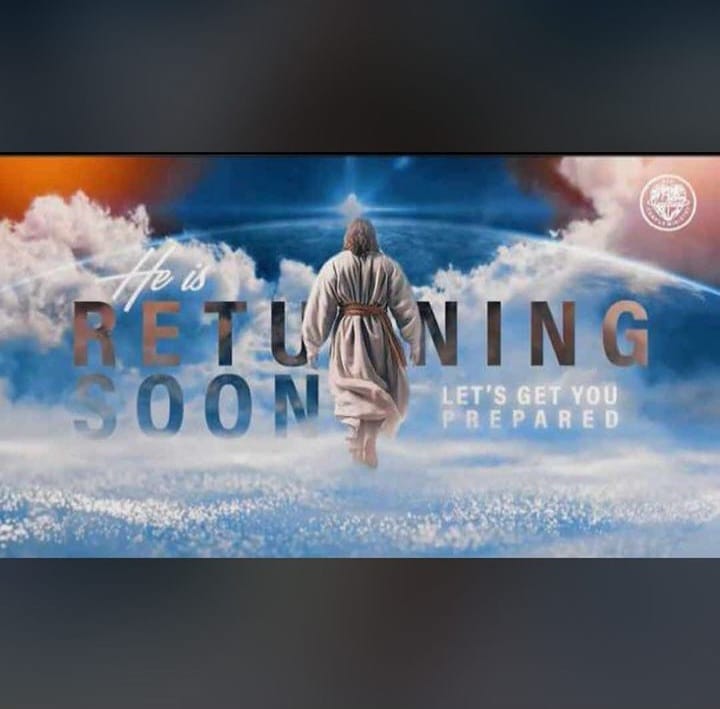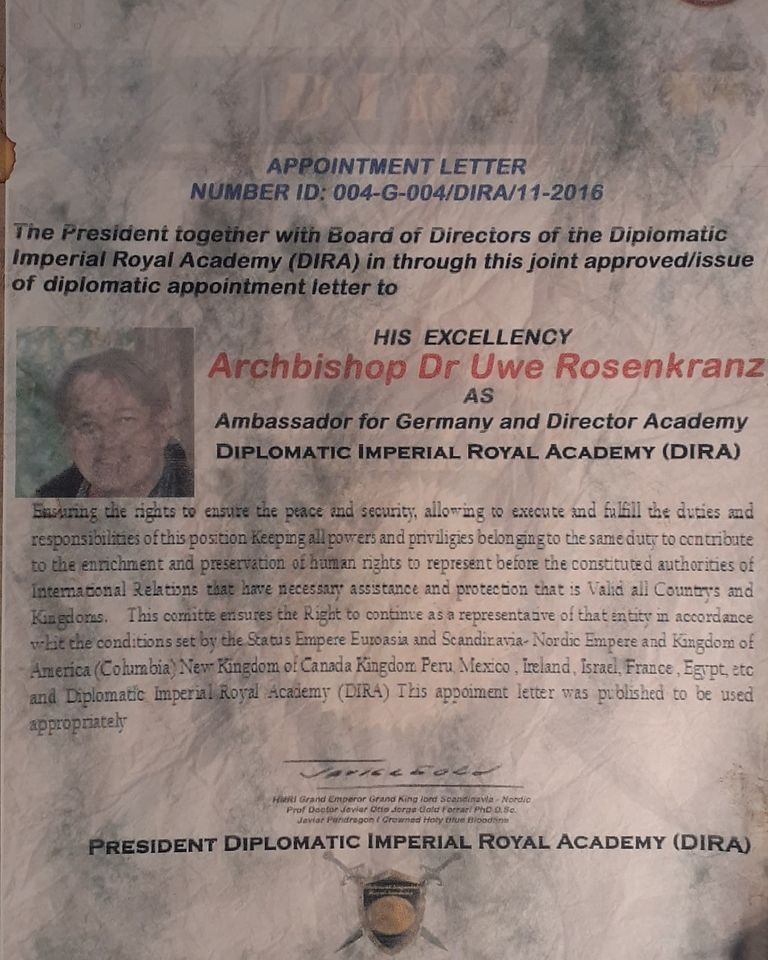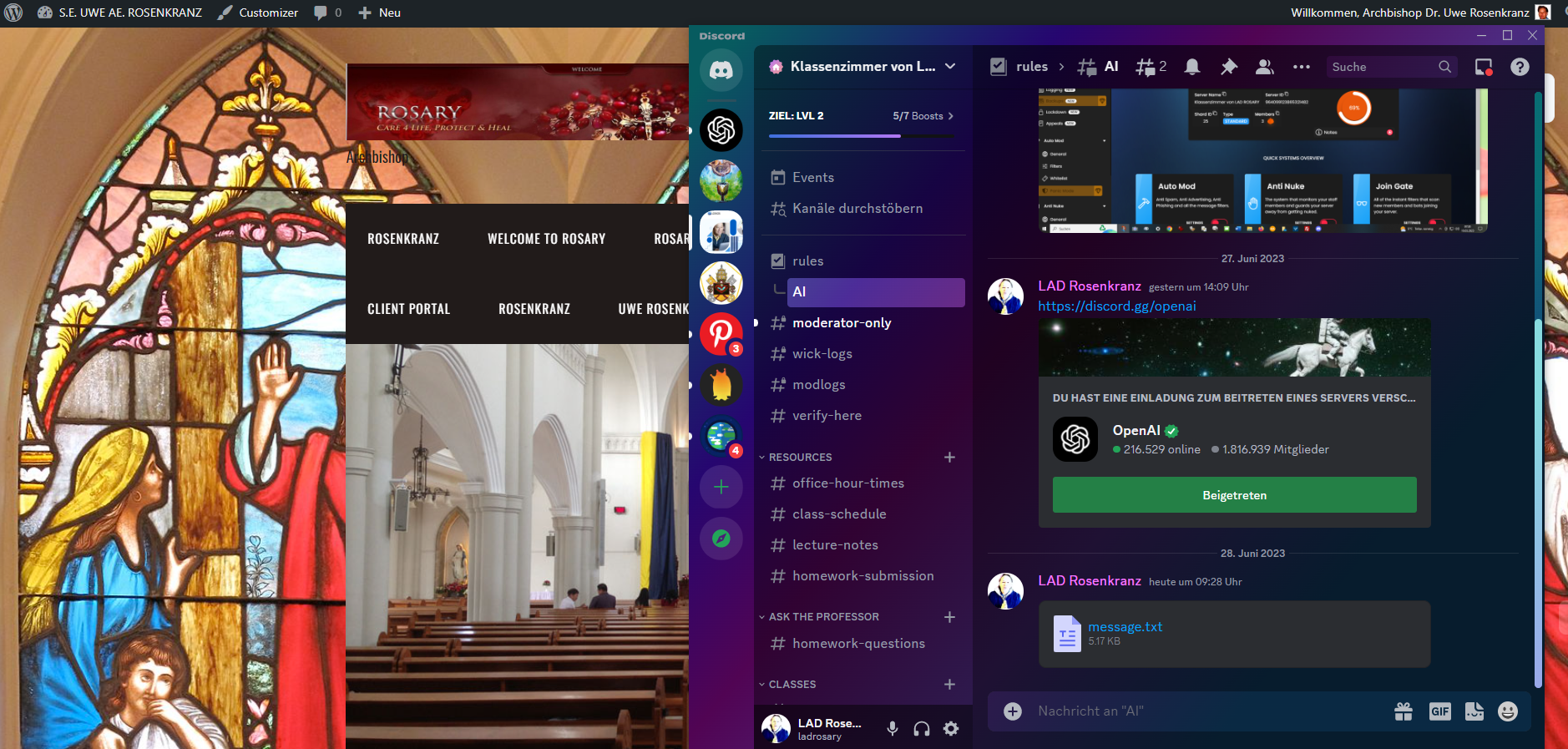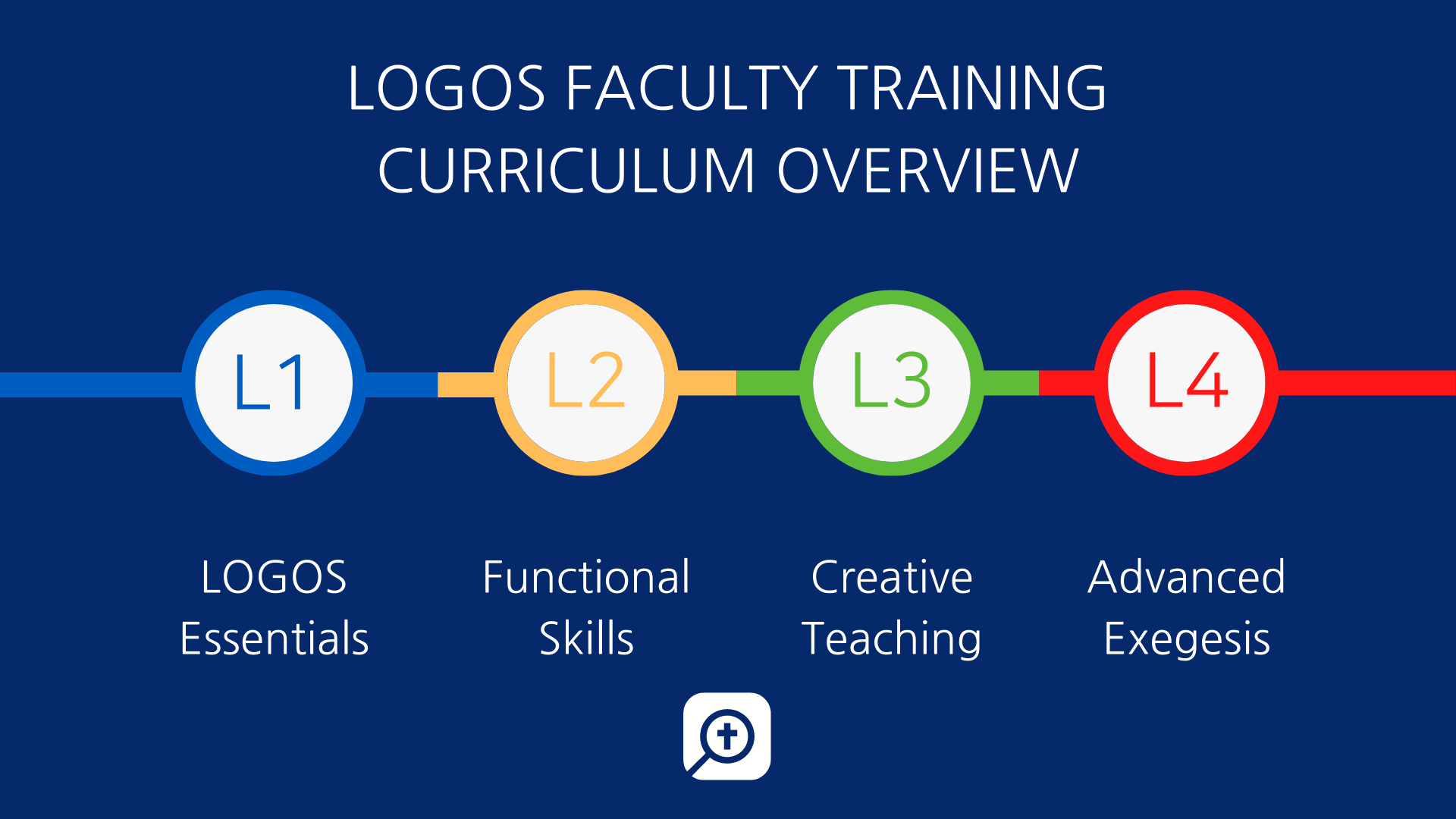Archbishop Uwe Dr. A.E.. Rosenkranz | Rosary
Words from GOD – Words to GODCasting out demons
Every Exorcism Is Eschatological: The Words of Demons in the Presence of Jesus
Mitch Chase13 min read8 mins ago

Share
People are afraid of demons. What are demons afraid of?
Have you ever wondered? Maybe you would think it strange to imagine demons being afraid of anything. The accounts of demonic possession in the Gospels, and the attempts to represent such possession in films, can give even the bravest image-bearer pause as we consider the unusual capabilities of these sinister spirits.
But demons do feel fear—of something, and of someone. Reading a Gospel account of an exorcism (which is the term for a person’s deliverance from demonic possession), we can see that Jesus’s ministry included these encounters with spiritual powers, and his miracles involved triumph over them. Not only do the Gospel writers tell us that these encounters took place, they even report words spoken by these demons to Jesus. These words give us insight into what the demons fear—and what they expect to someday happen.
Miracles are signs that point
Never was there a miracle-worker like Jesus. The Old Testament certainly contained miracles, which people like Moses and Elijah and Elisha performed by God’s power; but the escalation of miracles in the days of Jesus is staggering. At the end of John’s Gospel, the author says that Jesus “did many other signs in the presence of the disciples, which are not written in this book” (John 20:30). The miraculous accounts, therefore, are not comprehensive but are selective.
Summary accounts in the Gospels show the selectivity of the biblical authors. Very early in Matthew, for instance, the author says of Jesus,
So his fame spread throughout all Syria, and they brought him all the sick, those afflicted with various diseases and pains, those oppressed by demons, those having seizures, and paralytics, and he healed them. (Matt 4:24 ESV)
Or consider this statement Matthew makes a few chapters later:
That evening they brought to him many who were oppressed by demons, and he cast out the spirits with a word and healed all who were sick. (Matt 8:16 ESV)
These summary statements confirm that the miracles of Jesus were many and that the Gospels only give a small sampling of the wonders he performed. All four Gospels report various miracles, but John’s Gospel is the only one that calls these miracles “signs” (see John 2:11; 4:54).1 Signs are revelatory. They gesture beyond themselves. Miracles, then, are not the main point; they are signs that point somewhere. As we’ll see, they’re signs that the demons could read, perhaps better than we can.
Miracles and the future
What do the miraculous signs of Jesus point to? These miracles have at least three purposes.
- First, miracles provoke identity questions about Jesus. In Mark 4:35–41, where Jesus calmed the tumultuous waves and wind, the disciples said, “Who then is this, that even the wind and the sea obey him?” (4:41).
- Second, miracles bear witness to the origin and truthfulness of Jesus’s ministry. They are works that “bear witness about me that the Father has sent me” (John 5:36).
- Third, miracles foreshadow the far-future age of worldwide shalom. God had promised in the Old Testament that his future work in the world would bring transformation and restoration to creation and to his creatures (Isa 35:1–10). Jesus’s miracles were glimpses of the glorious life to come for God’s people and God’s world.
This third purpose for miracles brings us back to the demons. If it’s true that miracles have some eschatological purpose, then we can make that claim about one kind of miracle; namely, exorcisms. In other words, every exorcism is eschatological. Every exorcism points, like a sign, to the end of all things.
Miracles foreshadow the way things will be. When Jesus cleanses lepers and tells paralytics to walk, his acts of restoration stir and deepen our hope that all shall be well. When the dead come back to life, we are reminded that one day there shall be no more mourning or death. When the blind see and the deaf hear, we can anticipate the coming age of bodily glorification that will be forever free of any corruption or malady. The earthly miracles of Jesus were temporary, but they were signs nevertheless, real signs to stir real hope for a real future.
Exorcisms give hope that the God’s image-bearers will be restored, and that the wicked—including rebel spirits—will be judged. This is why exorcisms make demons afraid.
Demonic possession is dehumanizing
Demons hate people. They hate men and women, adults and children, Jews and Gentiles. Looking at accounts of demonic possession and oppression in the Gospels, we could not reasonably conclude otherwise.
In Mark 1:26, a demonic spirit caused a man in a synagogue to convulse. In Mark 5:1–5, a possessed man lived in a Gentile region and among tombs. He dwelled naked and as an exile from society, crying out night and day as he cut himself with stones (5:5; Luke 8:27). In Mark 9:14–29, a young boy was possessed, and his afflictions included convulsions, rigidity, teeth grinding, and foaming at the mouth. The demon would cast him into both fire and water (9:22).
Sometimes demonic possession not only involved control of a host’s body, it could also disrupt the host’s bodily senses. A demonic spirit could make a person mute and deaf (Mark 9:17, 25). Possession might also bring unusual ability, such as the incredible strength of the man in Mark 5. The man “had often been bound with shackles and chains, but he wrenched the chains apart, and he broke the shackles in pieces. No one had the strength to subdue him” (5:4).
One of the most upsetting aspects of demonic possession is that human beings no longer behave as they should. The rebel spirits seem to take delight in the slow demise of God’s image-bearers. A father of a possessed boy told Jesus, “It has often cast him into fire and into water, to destroy him” (Mark 9:22). If the aim of possession is destruction, then the aim of exorcism is the opposite. Deliverance from demons brings restoration. The dehumanizing state of possession is overcome by divine power.
Consider the example of the man in Mark 5:1–20. He had been living among the tombs as a person of frightening strength and unsound mind. When Jesus delivered the man, the biblical author tells us that word spread, and people showed up.
And they came to Jesus and saw the demon-possessed man, the one who had had the legion, sitting there, clothed and in his right mind. (Mark 5:15 ESV)
“Clothed and in his right mind”—this is the picture of a man restored. And it is a sign of what the transforming power of God will do for all his people. He is overcoming what has harmed our humanity. The hope for divine dominion to reverse the curse of sin and death is a hope Jesus inaugurates in miracles like an exorcism. If demons hate humans, they will hate anything that promises good to them.
Exorcism is the exercise of dominion
The incarnation of Christ is the bodily presence of the Son of God in a fallen world. And his miracles are an exercise of dominion in it. In the Old Testament, Joshua and the Israelites underwent the conquest of Canaan, subduing cities and kings and idols. In the New Testament, Jesus is a greater Joshua performing a greater conquest. He has not come to subdue Jericho or Ai. He has come to subdue sin and death. He has come to triumph over spiritual powers and principalities. This victory is glimpsed in part through exorcisms.
When demons possess an image-bearer of God, they are exercising dominion. They have subdued a human being under their control. In Mark 9, where we read about the young boy whom the demon would throw into fire and water, we can recognize that this mistreatment was against the will of the boy and of his helpless father.
Then Jesus comes onto the scene and gives an order:
You mute and deaf spirit, I command you, come out of him and never enter him again. (Mark 9:25 ESV)
The unclean spirit left the boy (9:26), and he rose from the ground in his right mind (9:27). Jesus had exercised dominion over the demon that had subdued the boy. A greater authority was present. A superior power was at play.
Scribes once accused Jesus of performing exorcisms by evil power, but he disabused them of this foolish notion. If Jesus performed exorcisms by evil power, that would mean Satan was working against Satan, and a house—or a kingdom—divided against itself could not stand (Mark 3:22–26). Exorcisms were the result of Christological dominion over the kingdom of darkness. Jesus was raiding a house of captives.
Jesus said,
No one can enter a strong man’s house and plunder his goods, unless he first binds the strong man. Then indeed he may plunder his house. (Mark 3:27 ESV)
An exorcism sets the captive free, and the captor is overcome. The “strong man” is probably a reference to Satan himself, and the “house” is a metaphor for Satan’s dominion over people. Jesus is the stronger man who binds the strong man and releases the possessed.
The imagery of superior strength is part of the exorcism in Mark 5:1–20. The biblical author tells us that no one could bind the possessed man who lived among the tombs (5:3). The man would break the chains that others placed on him (5:4). Truly, “No one had the strength to subdue him” (5:4)—that is, until Jesus arrived in the country of the Gerasenes.
Jesus could subdue what no one else could subdue. He could bind what no one else could bind, and he could free what no one else could free. This exercise—or “exorcise”—of dominion signaled the superior authority and power that would one day make all things new, overcome the wicked, and deliver the oppressed. Every exorcism was eschatological. Every exorcism was a sign that pointed to the overthrow of the kingdom of darkness. The demons knew that day was coming.
Demonic systematic theology
We can infer what demons know because of what they said. And what they know is impressive in the context of Jesus’s contemporaries, who struggled to understand who Jesus was, and who displayed spiritual dullness time and time again.
In Mark 1:21–28, the scene is a synagogue, and present that day was a demon-possessed man. He cried out to Jesus,
What have you to do with us, Jesus of Nazareth? Have you come to destroy us? I know who you are—the Holy One of God! (Mark 1:24 ESV)
The nature of the language confirms that the unclean spirit is speaking and that this spirit knows at least two theological truths.
First, the unclean spirit knows the truth of Jesus’s identity. While the demon calls him “Jesus of Nazareth,” his hometown origin is superseded by the next claim, “I know who you are—the Holy One of God!” (Mark 1:24). Here is an unholy spirit beholding the Holy One himself.
Second, the demon speaks about judgment—“Have you come to destroy us?” The language of destruction is about future condemnation, and the demon asks Jesus about it.
Adding another scene for consideration, Mark 5:1–20 is about that possessed man who lived among the tombs. In 5:7, the man cried out with a loud voice to Jesus, “What have you to do with me, Jesus, Son of the Most High God? I adjure you by God, do not torment me.” We can conclude the demon’s understanding of the same two theological truths that were evident in Mark 1. First, the spirit knows Jesus’s identity. He calls Jesus “Son of the Most High God.” Second, the spirit speaks about judgment—“Do not torment me.” Such a plea confirms the authority of Christ to judge demonic powers.
When we look at the First Gospel’s account of the scene in Mark 5, a little more detail appears in the spirit’s speech in Matthew 8:29: “What have you to do with us, O Son of God? Have you come here to torment us before the time?” The phrase “before the time” suggests a future judgment. While the exorcism is not equivalent to the final judgment, the exorcism is still eschatological because it is a sign pointing to the final judgment of rebel spirits.
Demons know who Jesus is: they know that he is their judge. Based on their speech to Jesus in the Gospels, they know they cannot avoid the inevitable condemnation that awaits them.
The destiny of demons
When I was growing up, I imagined that hell would be overseen by a gleeful devil and his prancing demons. They would forever rejoice in their accomplishments, and they would seek to torment the wicked who faced such judgment in hell.
The Bible presents a different picture. In Matthew 25:31–46, Jesus speaks about his Second Coming, a time when he will establish final states for the righteous and the wicked. And when he mentions the wicked departing into judgment, he refers to it as “the eternal fire prepared for the devil and his angels” (Matt 25:41). Jesus’s words mean that the devil and the demons are receiving judgment, not meting it out. Their future is eternal condemnation.
Turning to the last book of the Bible, and to its final chapters, the apostle John describes for us a vision of the final judgment. In Revelation 20:10, the “devil who had deceived them was thrown into the lake of fire and sulfur where the beast and the false prophet were, and they will be tormented day and night forever and ever.”
The devil and his rebel angels will share the same destiny. An exorcism is a downpayment of their damnation. In the Gospel accounts, Jesus casts out demons, and at his return he will condemn them along with Satan to the lake of fire. Every time Jesus said, “Come out of him,” or, “Come out of her,” that rebuke pointed toward the Last Day, the Day on which the risen Christ, by his righteous and supreme authority, will assign the wicked spirits to their allotment of everlasting punishment. And just as in his earthly ministry, they shall not resist his voice. Therefore, their fear is not in vain, for the One who cast them out shall cast them down.
Related articles
Kunst, Krieg und Re-Kultivierung

Abonnieren, um weiterzulesen
Schließe ein Abonnement ab, um Zugriff auf den Rest dieses Beitrags und weitere exklusive Inhalte für Abonnenten zu erhalten.
Kommentare aus
#COP28 in Dubai
Kopie von ACTIONIST FILM HORIZONTAL OPENING TITLE von LAD Uwe A. E. RosenkranzCOP28
Die UN-Klimakonferenz in Dubai 2023, kurz COP 28 ist die 28. UN-Klimakonferenz. Sie findet statt vom 30. November bis 12. Dezember 2023 in Dubai, Hauptstadt des Emirats Dubai und größte Stadt der Vereinigten Arabischen Emirate. Wir beteiligen uns an dem COP28 actionismus. Wir glauben, dass JESUS bald wiederkehrt. Dennoch haben wir die Aufgabe, LEBEN ZU SCHÜTZEN; ZU BEWAHREN UND ZU HEILEN. Dazu haben wir den Auftrag, das globale Mandat und konkrete Lösungen, mit denen wir bereits den ersten Klimaschutzfonds als Lighthouse Projekt am Klimasekretariat in Bonn (Germany) implementiert haben. Der ROSARY fonds wurde 2017-2019 erfolgreich evaluiert und in New York bei der UNO gecleart. Klimafonds mehr details auf academia.edu: #SolarEnergy und #FoodSecurity und #WaterSecurity Hier können Sie Anteile erwerben: [ecwid_product id=“180357177″ display=“picture title price options qty addtobag“ version=“2″ show_border=“1″ show_price_on_button=“1″ center_align=“1″] Hier der Wortlaut des Appells von Papst Franziskus anlässlich der #COP28 in Kuwait:Wortlaut: Der Appell des Papstes an die COP28 in Dubai
 Uns wurde breits eine Foreign Policy ausgestellt über insgesamt 700 Millionen €.
Dabei empfinden uns nur wenige als „Klempner der Macht“,
sondern eher als Ingenieure.
Uns wurde breits eine Foreign Policy ausgestellt über insgesamt 700 Millionen €.
Dabei empfinden uns nur wenige als „Klempner der Macht“,
sondern eher als Ingenieure.
 Hier im Shop können Sie Lizenzen und Fonds-Anteile erwerben.
ROSARY shop
Hier im Shop können Sie Lizenzen und Fonds-Anteile erwerben.
ROSARY shop
 Dazu stehen wir seit der ersten Klimakonferenz 1992 in RIO, Brasilien.
Auch auf der diesjährigen COP28 sind wir wieder dabei.
Dafür haben wir die Berufung und den Auftrag.
Dazu stehen wir seit der ersten Klimakonferenz 1992 in RIO, Brasilien.
Auch auf der diesjährigen COP28 sind wir wieder dabei.
Dafür haben wir die Berufung und den Auftrag. [ecwid widgets=“productbrowser“ default_category_id=“0″ default_product_id=“0″ minicart_layout=“MiniAttachToProductBrowser“]
[ecwid widgets=“productbrowser“ default_category_id=“0″ default_product_id=“0″ minicart_layout=“MiniAttachToProductBrowser“]


Labyrinthic labour


 [ecwid_product id=“276414958″ display=“picture title price options qty addtobag“ version=“2″ show_border=“1″ show_price_on_button=“1″ center_align=“1″]
[ecwid_product id=“276414958″ display=“picture title price options qty addtobag“ version=“2″ show_border=“1″ show_price_on_button=“1″ center_align=“1″] powered by:
powered by: 




LOGOS-The Remote Research Library-New courses
LOGOS-The Remote Research Library-New courses by Dr. Steven Ingino; via Lord Archbishop Dr. Uwe A. E. Rosenkranz Discover the Power of Logos: Digging into the Depths of God’s Word by Steve Ingino via Lord Archbishop Dr. Uwe A. E. Rosenkranz Unleash the full potential of your biblical studies with Logos Bible Software! Designed with your needs in mind, Logos goes beyond ordinary tools, empowering you to dig deep into the Scriptures while also saving you valuable time. Join us for a series of exclusive online trainings led by Logos expert, Dr. Steven Ingino. With over two decades of experience as a seminary student, pastor, and Logos user, Steve will show you how to get the most out of Logos for your studies and ministries. 63rd Birthday Uwe Rosenkranz plus wider family members- out in the gardens Whether you’re a beginner seeking to learn the basics or an experienced user aiming to elevate your proficiency, these trainings will enhance your time in Logos. Seize the opportunity to strengthen your Logos proficiency and experience the profound impact it can have on your spiritual growth. Explore the wide array of upcoming training sessions listed below (as well as other options listed on the Training Hub) and take advantage of the convenient on-demand options available here as well: http://www.logos.com/student-training. Secure your spot today by registering early! Logos Basic and Intermediate Training – Tuesday, 7/11 – Noon Pacific Searching and Research in Logos – Thursday, 7/13 – Noon Pacific Shortcuts for Research in Logos – Tuesday, 7/18 – Noon Pacific Ask Anything! Q&A for Logos Bible Software – Friday, 7/21 – Noon Pacific If these times don’t work for you, take the online “Getting Started” course here or watch the 101, 102, and 103 videos at http://www.logos.com/student-training For training materials in Spanish, please visit: https://support.logos.com/hc/es Spanish Training Videos: https://support.logos.com/hc/es/categories/360000675231 Check out the Training Hub, your one-stop destination for all training registration links. Explore the additional training opportunities offered by various Logos trainers, featuring a variety of dates and times: https://www.logos.com/academic-webinars If you attend a school outside of the U.S., please register and then I will send you the recording after the training takes place. Logos Basic and Intermediate Training: (90 Minutes) When?: Tuesday, 7/11/2023 @ Noon Pacific (Register Here) Where?: Online – Zoom link supplied with registration Why?: In this training, you’ll discover strategies anyone can use to get started with ease, but will also gain a greater appreciation of how to customize Logos for your specific study needs. We will cover topics and features such as customizing layouts, utilizing parallel resources, the text comparison tool, the information tool, the passage guide, exegetical guide, topic guide, Bible word study guide (linking tools and guides to your Bible for instant lookup), basic biblical searching, searching your library, the Factbook, the amazing tools on the selection menu to speed up research, and time-saving shortcuts. Searching and Researching in Logos (90 minutes +) When?: Tuesday, 7/13/2023 @ Noon Pacific (Register Here) Where?: Online- Zoom link supplied with registration Why?: In this training, we will cover how to use Logos to perform basic and sophisticated searches in the Biblical text. You will learn how to do original language searches (on words and phrases) and how to use the morph search for some powerful searches that will enhance your studies and exegesis. You’ll discover how to search multiple books in your library for various content, improving your research (search all your journals, commentaries, or Bible dictionaries, etc.). We will cover how to use the Notes Tool and Favorites Tool for your research and for writing papers. You’ll learn how Logos can help you cite sources (footnotes), build a bibliography, “automatically” create a bibliography for you, and collect, organize, store, and search notes for your current studies and years of use in the future. If these times don’t work for you, you will find training videos at http://www.logos.com/student-training as well as http://www.logos.com/pro Shortcuts for Research in Logos (1 hour) When?: Friday, 7/18/2023 @ Noon Pacific (Register Here) Where?: Online- Zoom link supplied with registration Why?: Learn how to customize Logos for your unique study needs and how to create search shortcuts. For instance, you’ll have a shortcut to search all your textbooks, journals, commentaries, sermon illustrations, or Bible dictionaries. Students have said that these search shortcuts have revolutionized their studies. Don’t miss this! Ask Anything! Q&A for Logos Bible Software (1 hour) When?: Noon, 7/21/2023 @ Noon Pacific (Register Here) Where?: Online- Zoom link supplied with registration Why?: You probably have Logos questions related to specific assignments, study needs, or various tools and features. Here’s your opportunity to ask anything you want! Feel free to listen in and learn even if you don’t have specific questions. Please contact Dr. Steve Ingino at steven.ingino@logos.com if you have questions about the trainings. Thanks! – Dr. Steven Ingino Senior Customer Success Manager and Training Specialist | Higher Ed Logos Book a meeting with me Online training videos Online supportKeys of the Kingdom are in my hands, not in those of Donal J. Trump, as he pretends via UPIC. By Lord Archbishop Dr. Uwe A. E. Rosenkranz, known as Pope St. Peter Simon II
Last night, I heard the Lord say to me, “THIS IS THE SEASON OF THE SCEPTER !
!
The Lord is handing out a LEGACY of the KEYS of DAVID to unlock the season of the scepter! He is removing previous authorities & positions of power that wielded in corruption for the “Eliakim’s” of whom God raises up in a moment of divine restoration for cities & nations. They are marked by having Father’s Hearts!









LOGOS neue Kurse- via LAD Rosary
Discover the Power of Logos:
Digging into the Depths of God’s Word
 Whether you’re a beginner seeking to learn the basics or an experienced user aiming to elevate your proficiency, these trainings will enhance your time in Logos. Seize the opportunity to strengthen your Logos proficiency and experience the profound impact it can have on your spiritual growth.
Explore the wide array of upcoming training sessions listed below (as well as other options listed on the Training Hub) and take advantage of the convenient on-demand options available here as well: www.logos.com/student-training. Secure your spot today by registering early!
Whether you’re a beginner seeking to learn the basics or an experienced user aiming to elevate your proficiency, these trainings will enhance your time in Logos. Seize the opportunity to strengthen your Logos proficiency and experience the profound impact it can have on your spiritual growth.
Explore the wide array of upcoming training sessions listed below (as well as other options listed on the Training Hub) and take advantage of the convenient on-demand options available here as well: www.logos.com/student-training. Secure your spot today by registering early!
- Logos Basic and Intermediate Training – Tuesday, 7/11 – Noon Pacific
- Searching and Research in Logos – Thursday, 7/13 – Noon Pacific
- Shortcuts for Research in Logos – Tuesday, 7/18 – Noon Pacific
- Ask Anything! Q&A for Logos Bible Software – Friday, 7/21 – Noon Pacific
- When?: Tuesday, 7/11/2023 @ Noon Pacific (Register Here)
- Where?: Online – Zoom link supplied with registration
- Why?: In this training, you’ll discover strategies anyone can use to get started with ease, but will also gain a greater appreciation of how to customize Logos for your specific study needs. We will cover topics and features such as customizing layouts, utilizing parallel resources, the text comparison tool, the information tool, the passage guide, exegetical guide, topic guide, Bible word study guide (linking tools and guides to your Bible for instant lookup), basic biblical searching, searching your library, the Factbook, the amazing tools on the selection menu to speed up research, and time-saving shortcuts.
- When?: Tuesday, 7/13/2023 @ Noon Pacific (Register Here)
- Where?: Online- Zoom link supplied with registration
- Why?: In this training, we will cover how to use Logos to perform basic and sophisticated searches in the Biblical text. You will learn how to do original language searches (on words and phrases) and how to use the morph search for some powerful searches that will enhance your studies and exegesis.
- If these times don’t work for you, you will find training videos at www.logos.com/student-training as well as www.logos.com/pro
- When?: Friday, 7/18/2023 @ Noon Pacific (Register Here)
- Where?: Online- Zoom link supplied with registration
- Why?: Learn how to customize Logos for your unique study needs and how to create search shortcuts. For instance, you’ll have a shortcut to search all your textbooks, journals, commentaries, sermon illustrations, or Bible dictionaries. Students have said that these search shortcuts have revolutionized their studies. Don’t miss this!
- When?: Noon, 7/21/2023 @ Noon Pacific (Register Here)
- Where?: Online- Zoom link supplied with registration
- Why?: You probably have Logos questions related to specific assignments, study needs, or various tools and features. Here’s your opportunity to ask anything you want! Feel free to listen in and learn even if you don’t have specific questions.
LOGOS aktuell- by LAD Rosary
Dear faculty,
It is once again time for the Logos Refresher Program for faculty, and we highly encourage your participation. The program includes a series of four online, self-paced levels designed to help you learn Logos and consider how it can support learning in your courses. Logos is providing the program for free to any faculty who want to participate.
In addition, Logos will also apply a $25 credit per level completed to the account of each participant plus an additional $25 credit if all four levels are completed. On top of this, two participants who complete the Level 3 training will be chosen to win a bonus prize of $100 credit. This credit can be used for any purchases at logos.com.
For more information about the program and how you can get started, click the following link: https://www.easy-lms.com/logos-faculty-training/course-77742
The levels are now open, and to qualify for the credits, all work must be completed by 11:59 p.m. Central on August 11, 2023. Additional details can be found at the link above.
Logos is an amazing resource, and we highly encourage you to participate even if you only have time to complete Level 1. It will be well worth the time. If you have any questions, contact Chris McMaster at chris.mcmaster@logos.com.
Thank you,
Steve




 <<<<<<<<<<=================
<<<<<<<<<<=================

 meanwhile in the RosaryParish.com:
meanwhile in the RosaryParish.com: 

Du muss angemeldet sein, um einen Kommentar zu veröffentlichen.